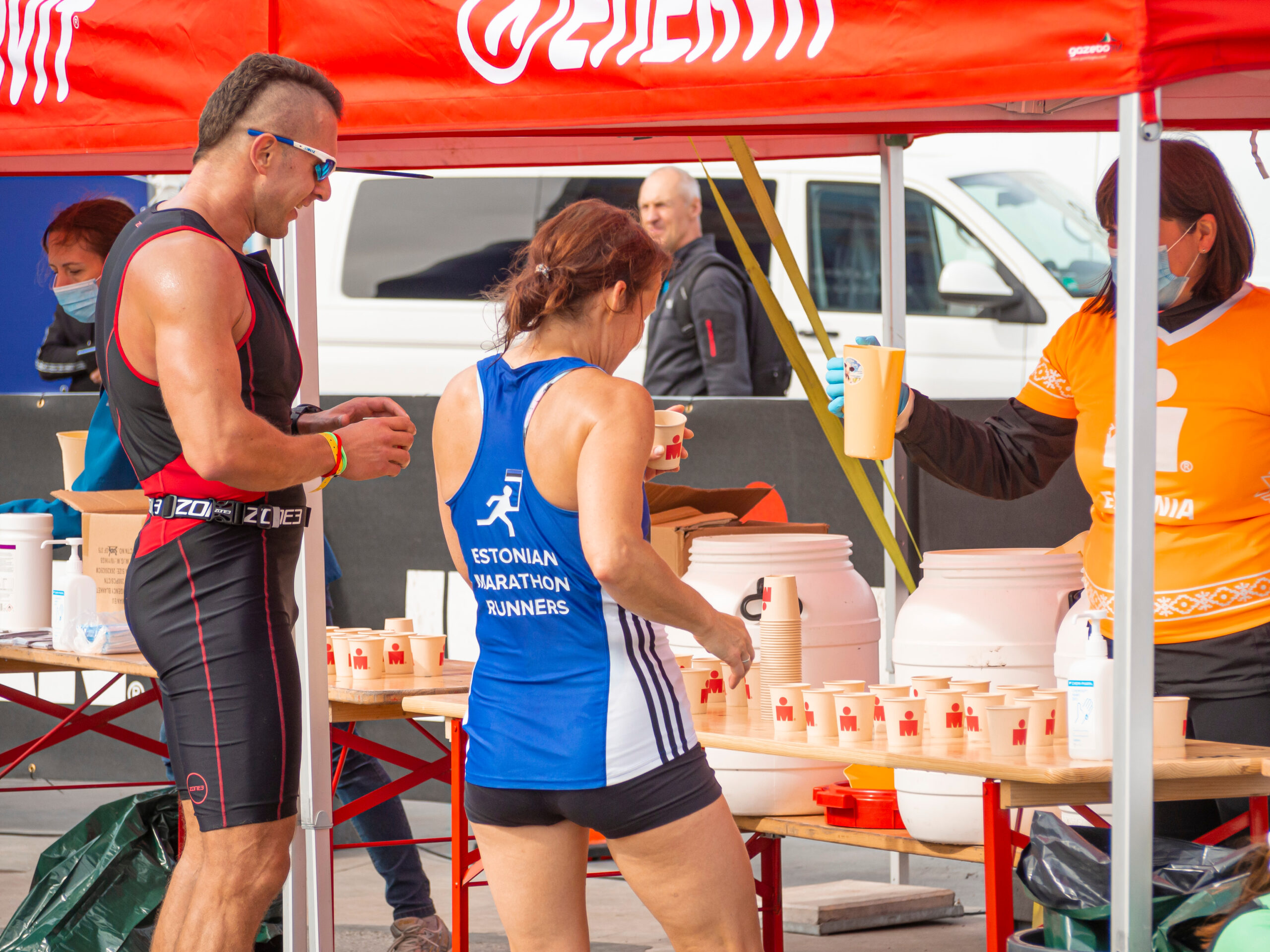Many of us fret over our nutrition on a regular day; on race day this stress is multiplied ten fold. Nutrition can make or break your performance. For many, they can create a complex nutritional strategy that needs meticulous execution to work. This creates even more stress. Here are some ideas to de-clutter your preparations and make the pre-race strategy a bit more relaxed.
1) Start the day before
Many races are early morning which puts time pressure on athletes. Waking up earlier comes at a cost to both sleep and routine. There can be a long list of little jobs to do on the morning and reducing this list can help limit opportunities for mistakes. In addition the body takes time to complete many of its bodily functions. Leaving things to the last minute can simply leave too little time for the body to get ready.
We recommend sipping a large bottle of water with a hydration tablet dissolved over the course of the previous afternoon. We also suggest having a high carbohydrate, low GI and low fibre meal later that evening. These both ensure that hydration and glycogen stores are topped up before bed. Your need for hydration and fuel first thing the next morning will be significantly reduced. Those who suffer from pre-race nerves will benefit significantly from only needing a smaller breakfast on race day. Starting the day underfuelled and dehydrated can be completely avoided.
2) Reduce fiber
Reducing fiber in the days leading up to a race can help reduce stomach discomfort on race day. Undigested fiber can take days to pass through your digestive system. By reducing the bulk of this waste you can take some pressure off the system. By reducing for only a couple of days you run very little risk of constipation or stomach issues. The reduced bulk can also help reduce race weight fractionally without any energy intake restrictions or dieting. Instead of vegetables and fruit you may substitute with low pulp juices to maintain nutrient intake. For those interested in this approach it is referred to as a low residue diet in the field of dietetics. It can be beneficial for those who suffer from cramping or slow digestion on race day.
3) Reduce complexity
Having a complex approach to nutrition on race day is risky. Many practice rigid pre-race strategies in their preparations and get into a strict routine. They then travel to a race only to find the foods they are used to are not available. This causes stress, panic and often experimentation at the worst time. Have a few simple pre-race options so that you can keep things simple and flexible come race day. The simpler things are, the easier it is to get them right.
4) Focus on what matters
Focus on what makes a difference. No matter how well conditioned you are or how advanced you equipment is, without adequate sleep, hydration and fuel you set yourself up for disaster. Things don’t need to be perfect. You just need to make sure you avoid neglecting the things that are guaranteed to influence your form on the day. Often people are quite relaxed in training and do things well. On day, they start to add in the extras hoping for a boost in performance. This change in routine does nothing more than add complexity and opportunities for error.
5) Do what works for you
Some athletes perform well on foods that others would avoid at all costs. You mustn’t be influenced by others if you are confident in what works for you. There are a lot of mind games being played the morning of the race. Often the helpful suggestions from fellow competitors do no more than create doubt in your mind. The top pros always seem so relaxed on race day. This comes from experience in knowing what matters and knowing that the money is already in the bank.
Remember, the race is usually won or lost long before and far away from where the race takes place.
If you enjoyed this article please like and share. Don’t forget to sign up to our newsletter below to receive links to new articles. If you’re looking to improve your own performance check out our services page.
